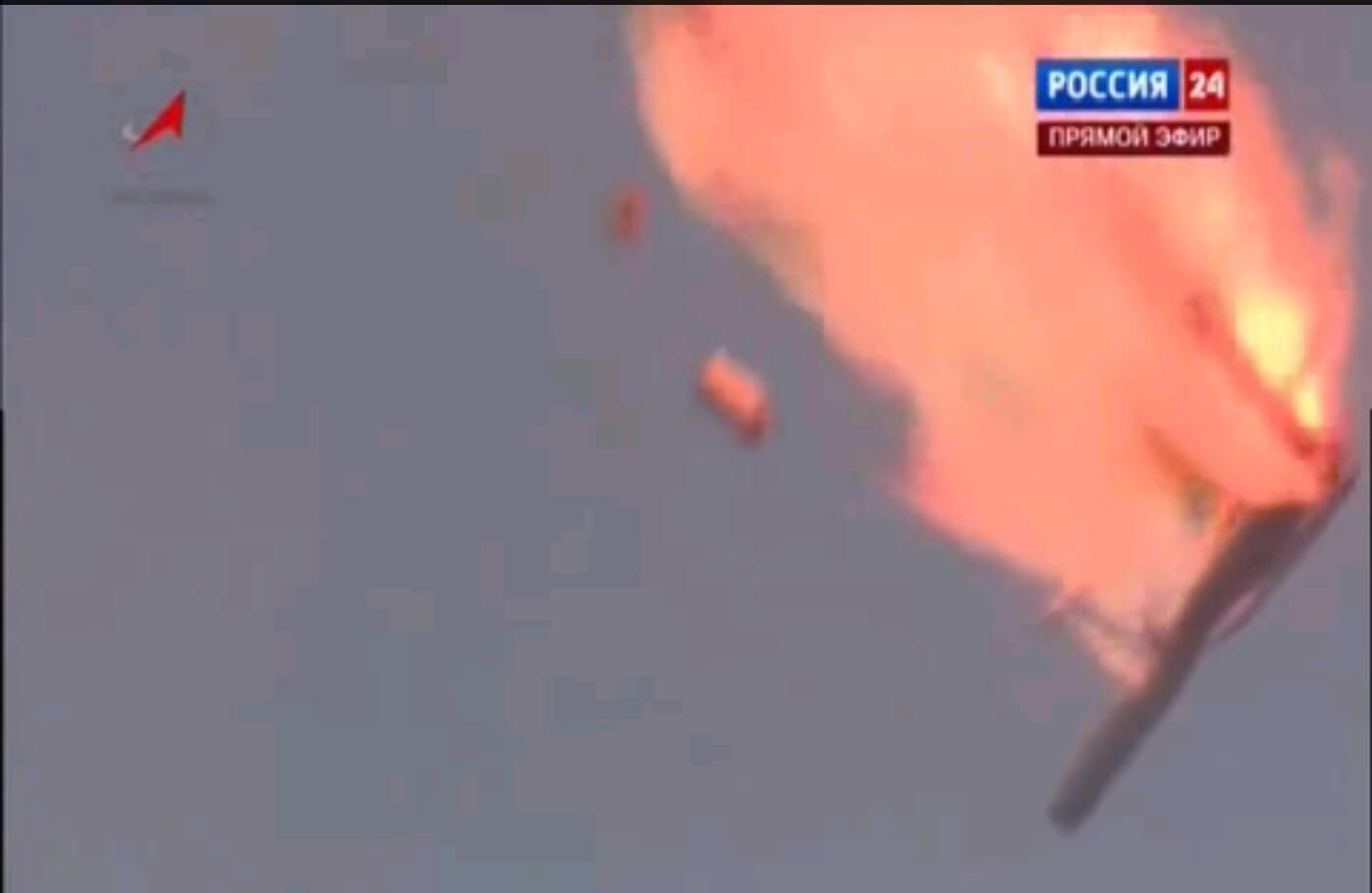The missile failed to rise, fell back and exploded on the way. No injuries were reported

At 02:38 GMT (05:38 Israel time, a Progress-M missile carrying three navigation satellites for the GLONASS network (the Russian equivalent of GPS) exploded, the launch pad exploded in Baikonur shortly after launch. The event was filmed and broadcast on a Russian news website (See attached video).
So far no casualties have been reported, but according to the NASASpaceflight.com website, since the explosion occurred in the air, there is concern that the remains of the missile landed near another launch pad used by the ILS (International Launch Services), a joint American-Russian venture for commercial launches.
Anatoly Zak from RussianSpaceWeb.com says that: "Since the emergency disconnection of the first stage is not possible during the first 42 seconds after launch to ensure that the missile clears the area of the launch facilities, the missile actually continued to burn until it hit the ground."
In other words, precisely a step taken to protect the launch site caused greater damage. A reminder that space flights are still not an easy matter.
http://www.youtube.com/watch?v=9jQ_tPm0J2E

7 תגובות
They only see money, there are no values, weapons are sold to everyone, killers, not killers, they don't care
Congratulations, beautiful explosion, so will their S-300 missiles
Because it is impossible to launch from Israel to the east because the first stages of the missiles in a proper launch or God forbid a malfunctioning missile could fall in the territories of other countries. Even if there was one, Israel would not have an advantage over Baikonur or even Cape Canaveral. It is still far enough from the equator to benefit from assistance from the Earth's rotation.
Even the non-commercial satellites launched from Falmahim (military satellites) are launched in the opposite direction from the logical direction - west for the same reason, as there is no choice. This is the reason why they have to be even smaller compared to the launchers, because it takes more fuel to get them into orbit.
Why is there no commercial launch site in Israel?
How much money did the Russian missile and each navigation satellite cost?
Is there a price? It is as interesting as the article itself.
experience:
http://www.youtube.com/watch?v=9jQ_tPm0J2E
What a beauty.